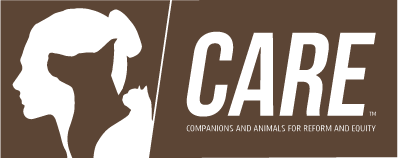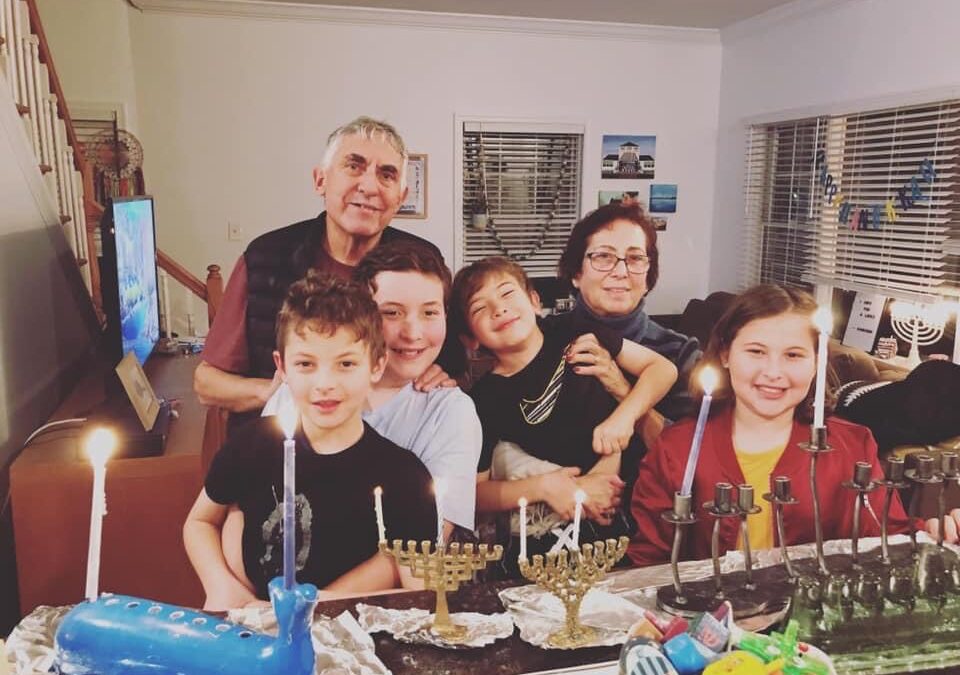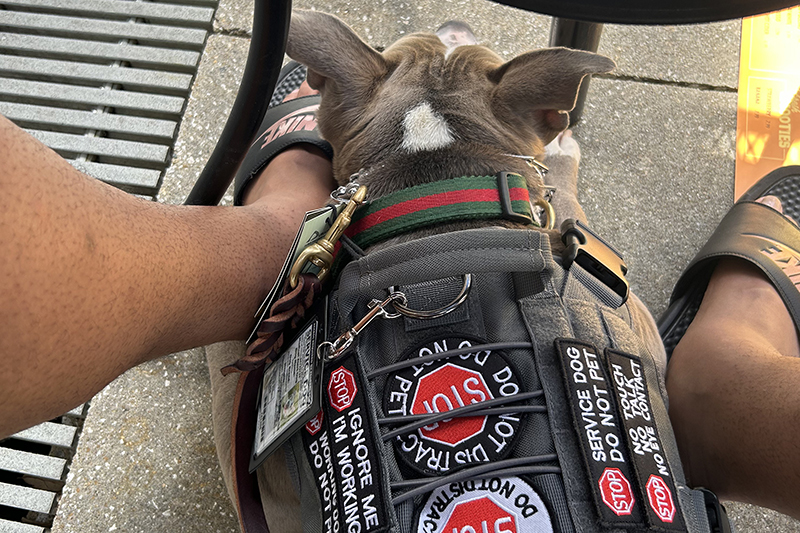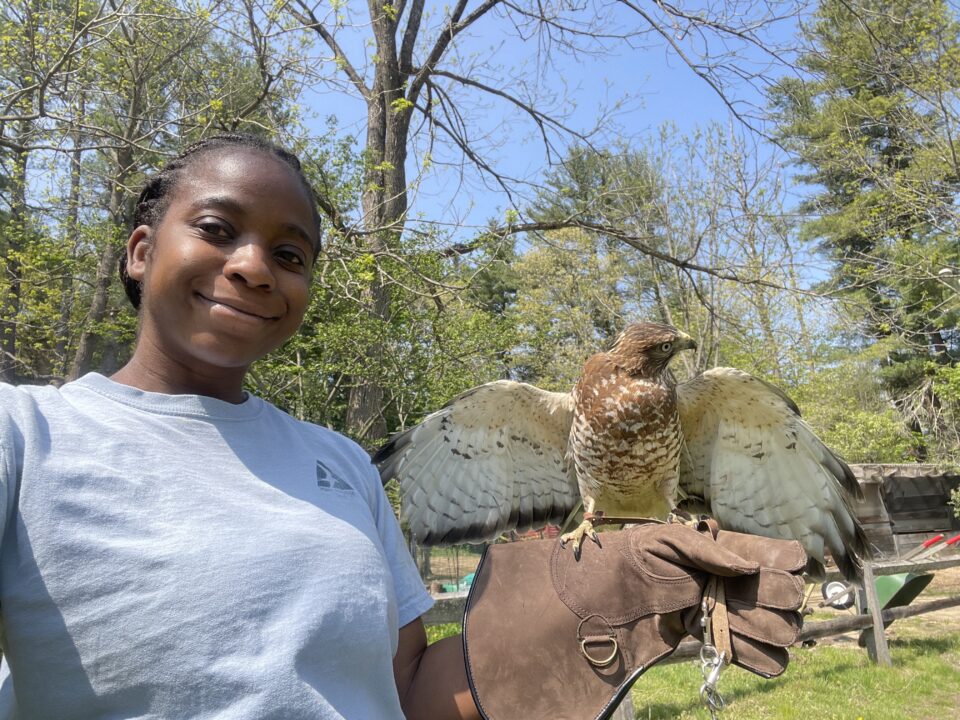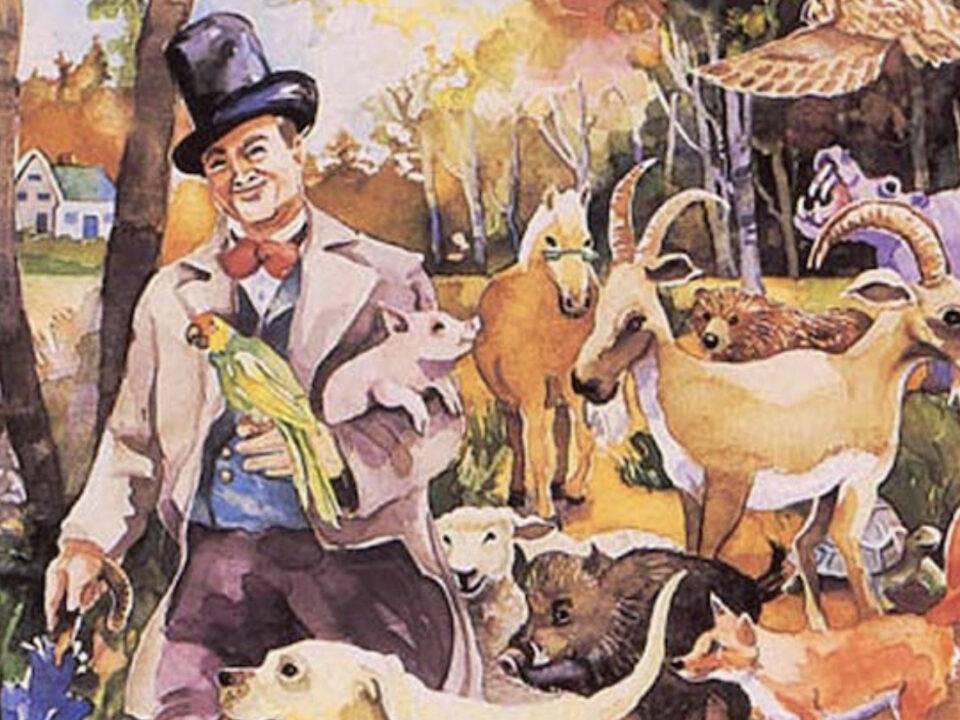
Every day is a disability awareness day for me
December 2, 2020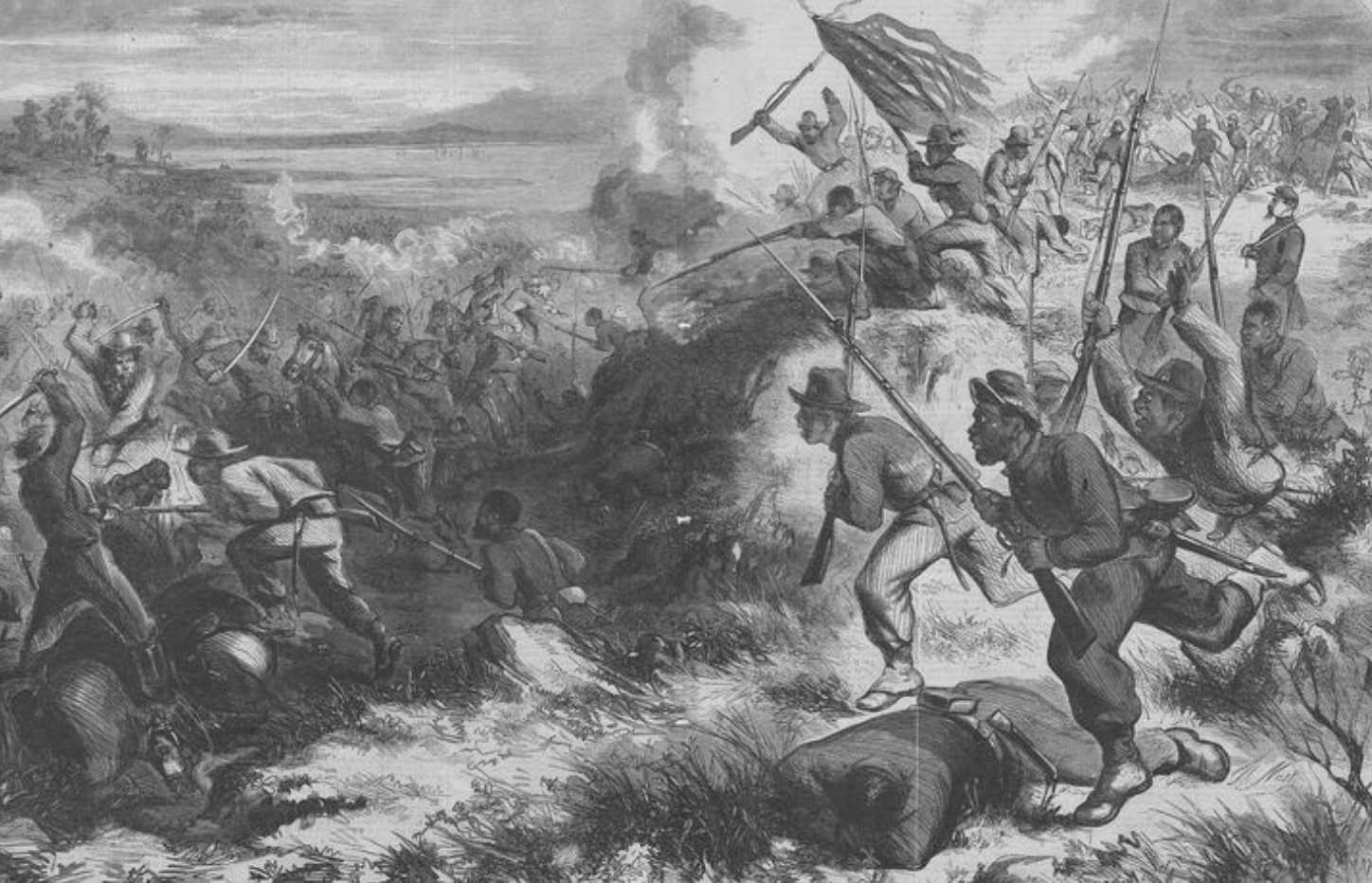
American History
February 2, 2021Written by Janelle Erlichman Diamond
Hanukkah is not Jewish Christmas.
And we like it that way, we really do. In fact, in the rating of Jewish holidays Hanukkah is pretty far down the list but its proximity to Christmas for sure amps up its importance.
Growing up in Frederick, Maryland—far from the Jewish epicenter I live in now—Hanukkah always meant the same thing: my parents coming into mine and my sister’s classrooms (throughout all of elementary school) and cooking up latkes, reading stories like “Rodney the Latke Eater” and having all the kids lay on the carpet and spin dreidels the rest of the afternoon. The smell of oil would linger long past the last bite of potato pancakes. Of course, at home, we lit the menorah each night and exchanged gifts, but this is the memory seared into my brain.
When I ended up having four of my own kids, I felt like it was my duty to continue on this tradition. I spent years running between four classrooms my arms overflowing with a bulk order of dreidels, books, and the occasional craft project. “Hey, you’re the Hanukkah mom,” a new batch of kids would say to me each school year. I wore that title proudly. Now my older two are in middle school and my twin fourth graders are attending class virtually.
My classroom years are waning which is why a few years ago we started opening up our house to friends. Each night—no RSVP needed—show up, eat some latkes, help us light our menorahs. Some nights it’s standing room only. Some are fellow Jews, but most are not. At a time when it feels like there is so much darkness—a shooting at a temple, Nazis being called “very fine people,” anti-Semitic graffiti, it’s my reminder that there is still light in this world. That maybe a kid who comes and spins dreidels with us, will speak up if he sees injustice. That hearing why Hanukkah is important—we are celebrating the victory of the Maccabees over the larger Syrian army and the miracle that occurred when a day’s supply of oil kept the temple illuminated for eight days—makes it important for them as well.

I call Hanukkah the “endcap” holiday. Walk into any big box store—I’ll call out Target here since it’s where I spend the most time—and you’ll find the Hanukkah wrapping paper, candles, and decorations hanging out on an endcap—usually somewhere between greeting cards and office supplies. Sometimes they’ll be a bonus “food endcap” near the cereal. Recently under a Happy Hanukkah sign my Target had it stocked with chicken broth, Bamba peanut puffs, Passover jelly rings, roasted and peeled whole chestnuts, and kosher grape juice. (A friend said they should have put a question mark after the word Hanukkah.) That would be like having a Christmas food display with gravy in a jar, chocolate Easter bunnies, salsa, latke mix, and Diet Coke. Like sure, you can have salsa on Christmas but would you? Over the year we’ve seen Hanukkah displays filled with matzo and Kosher salt too. A big corporation like Target should have at least one senior level staffer who can assist with this. And like I do every year when I social media shame them—I’m happy to offer my services.
The Hanukkah décor can also miss the mark. Yes, “Mazel Tov” isa Jewish phrase used to express congratulations for a happy occasion like a wedding or Bat Mitzvah, but it has nothing to do with Hanukkah. (Mazel Tov on these delicious latkes!) “Happy Challah Days” is adorable but also has ZERO to do with the holiday. One more: “Deck the Halls with Matzo Balls.” For starters we don’t deck our halls and matzo balls (while so delicious) are also not a traditional Hanukkah food. The simple lesson is: Just because something is Jewish or Kosher doesn’t mean it’s Hanukkah related. It would be like a Christmas sweater that said “Hoppy Christmas” with bright candy filled eggs around it. That. Doesn’t. Make. Sense.
Just because something is Jewish or Kosher doesn’t mean it’s Hanukkah related
And one more thing. Why is Hanukkah banished to an endcap? We’d need like one shelf in the “holiday section” of the store. There’s rows and rows and rows of Christmas wrapping paper, ornaments, trees, and decorations. And that is wonderful. But why can’t Hanukkah live under that holiday umbrella too? Imagine asking a Target associate if the Hanukkah wrapping paper is near the other holiday paper. “No. That’s waaaaayyyyy over by the office supplies on the other side of the store. Turn left at the printer paper.” It just feels icky.
I hate to sound like I’m complaining but it’s so simple to fix. Why not just do it. I try to teach my children that being different is special. That we should never be embarrassed or ashamed of who we are. That our traditions matter as much as anyone else’s. We love buying ornaments for special friends and hearing about their unique family rituals. We love driving around looking at all the Christmas lights and hanging up all the beautiful holiday cards around our home. We love seeing who opens presents on Christmas Eve and who waits until the next morning.
Four years ago I spent 10 December days in Israel. It was eye-opening being somewhere not drenched in Christmas. It felt strange and wonderful. It was such a nice reminder that our own corner of the world isn’t the whole world. And when we start realizing that we open ourselves up to so many beautiful lessons.
So here we are about to spend Hanukkah in the midst of a pandemic. We’ll Zoom with family and miss friends. We’ll light the ridiculous number of menorahs we own and fight over who gets to light the new one. We’ll put out bowls of dreidels and gelt for friends to pick up off our porch. We’ll open presents and I’ll realize—like always—I don’t have enough for all eight nights. And we’ll dedicate one night of gifts to another family in need.
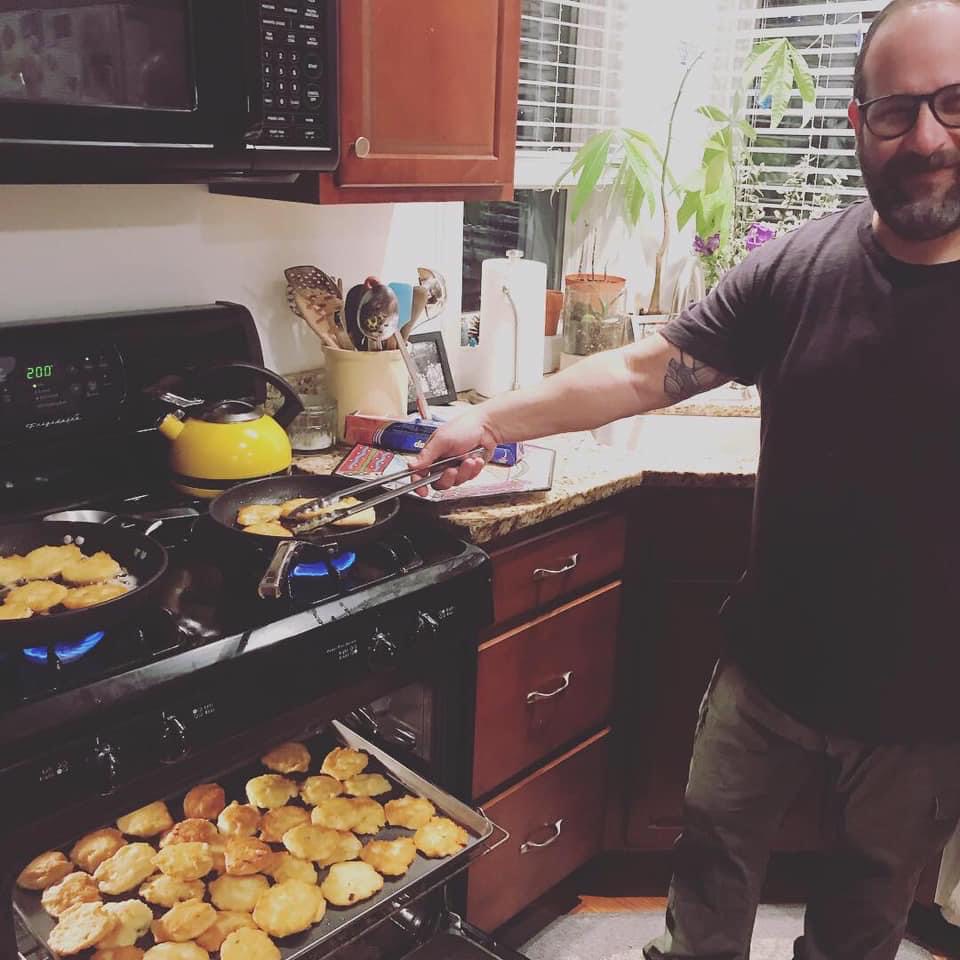
There are so many beautiful quotes about Hanukkah—ones that feel especially important this year—about how even a little bit of light can dispel darkness. All of us should want to put more light into the world. For me, that means teaching my children to be kind folk who are inclusive and curious about the world. But it also means being the Hanukkah mom and helping others learn that as well.
“A candle loses nothing by lighting
James Keller
another candle.”
